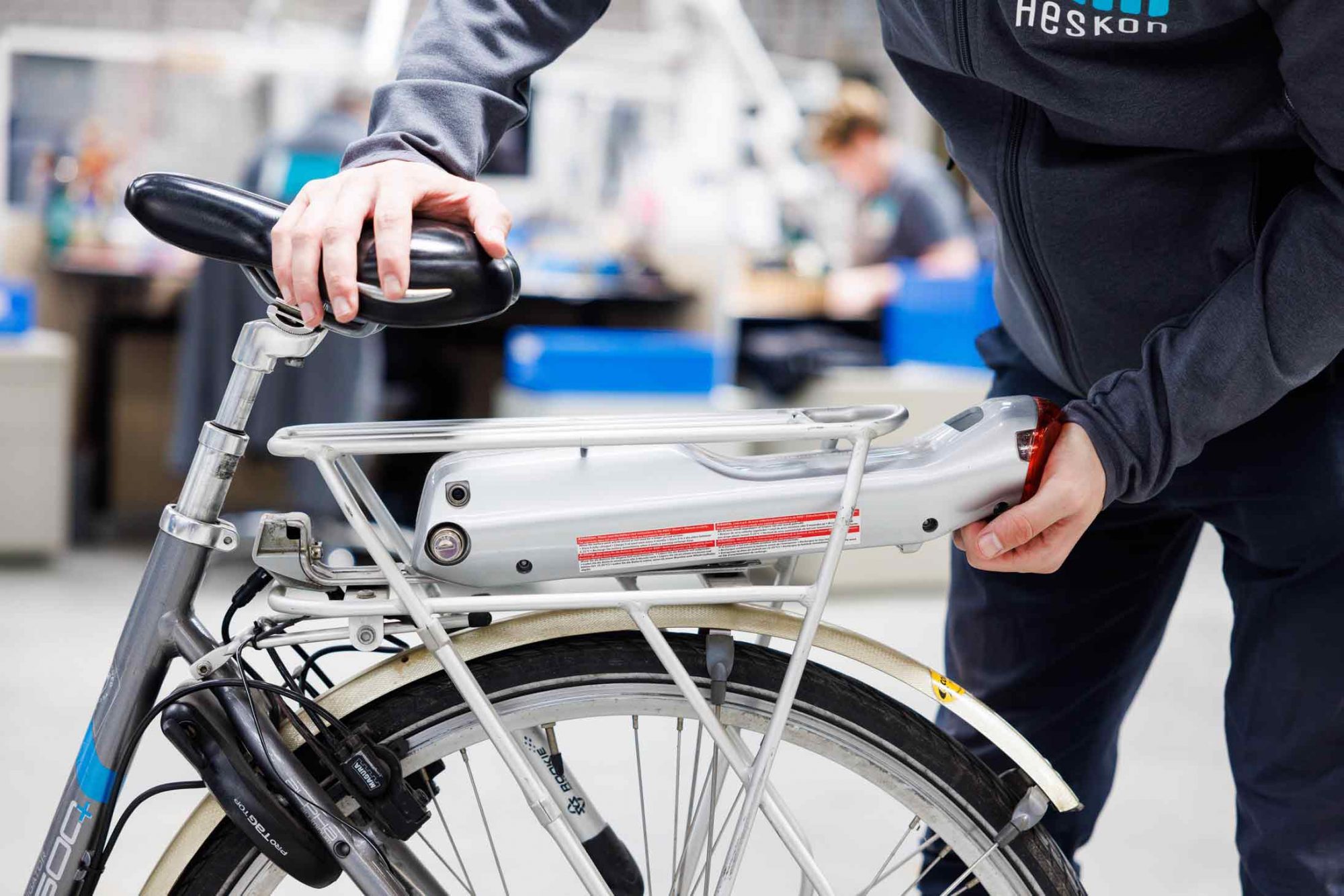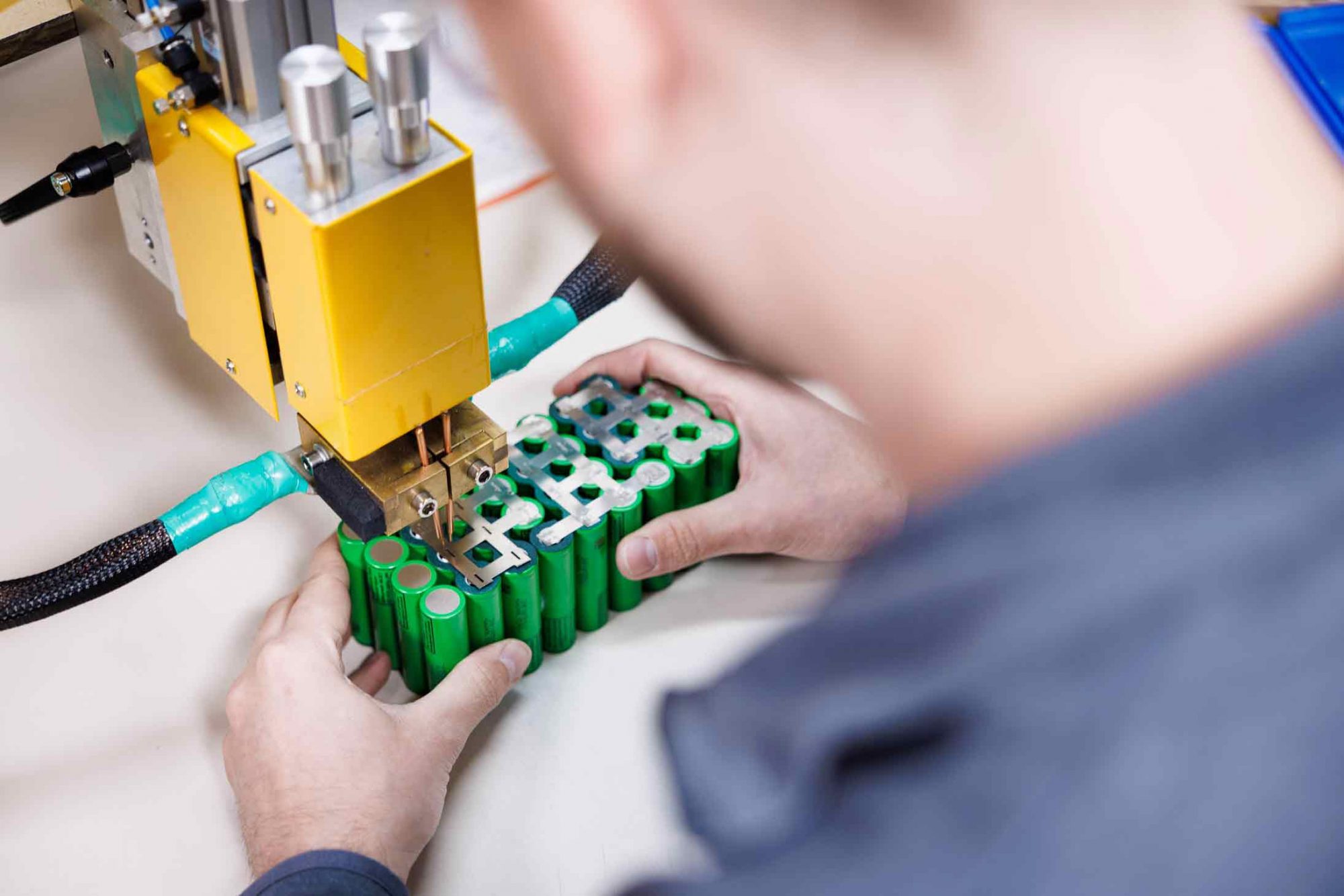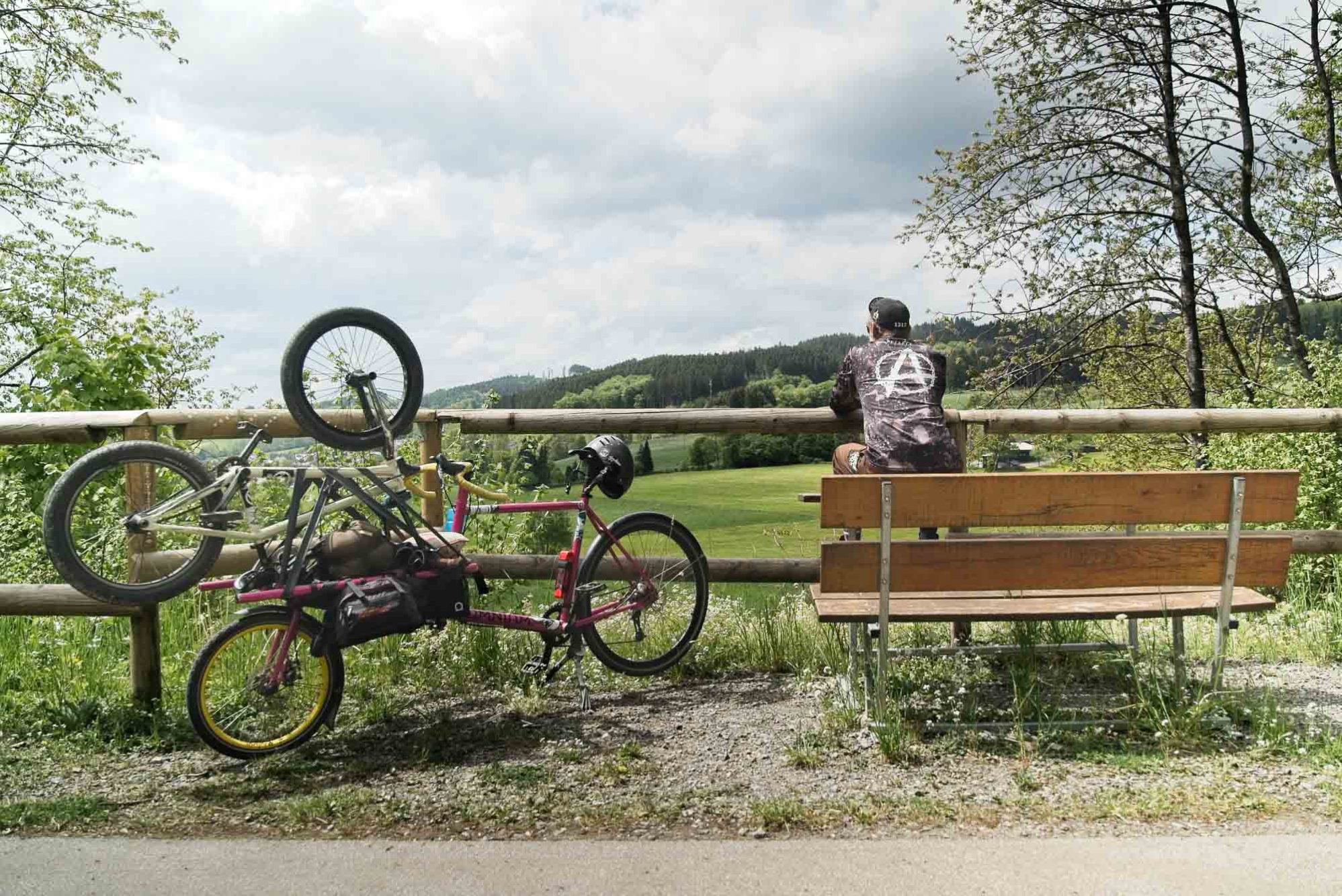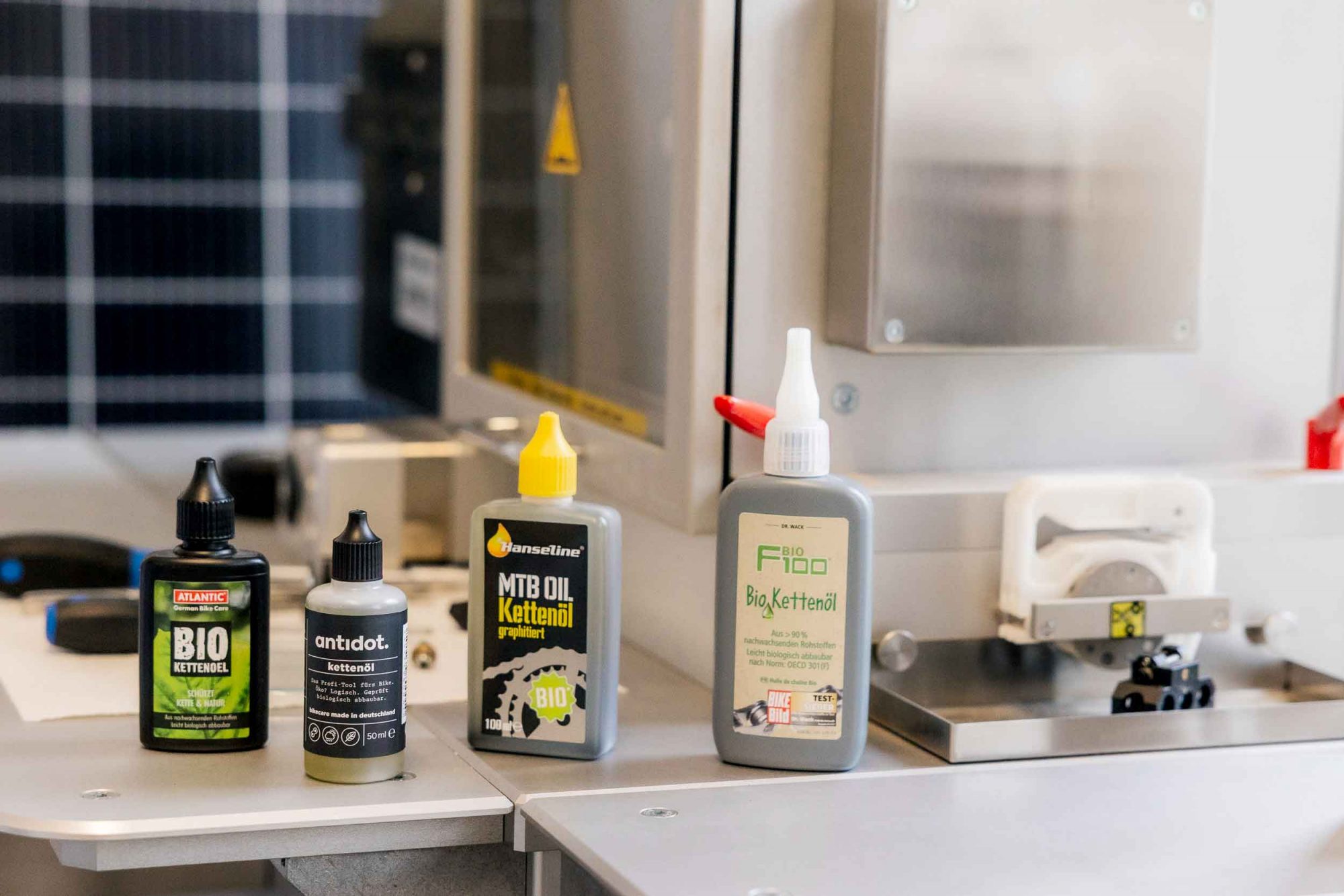Electric bikes are becoming increasingly popular as we modernize our mobility. However, we at lifeCYCLE are looking at this trend with a certain amount of skepticism. After all, the good old „biobike“ is so ingenious and efficient that we often ask ourselves: do we really need all this technological effort here, or wouldn’t our own power suffice? Batteries in particular are a problem when it comes to the sustainability of e-bikes. In this article, we show you how to use your e-bike in a more environmentally friendly way by repairing the battery and using other tricks.
Nevertheless, there are countless applications where e-bikes make perfect sense. Whenever they replace a car journey, the environment and the climate are helped a little. Whether it’s the ride to work, to daycare or to the shops: E-bikes make it possible for everyone to leave the car behind when a conventional bike might reach its limits.

Conventional bicycles are limited to rather short distances – at least for less experienced cyclists. E-bikes, on the other hand, can easily be used for commuting to work thanks to their motor and long-range battery. And all without a sweaty work outfit. Electric bikes allow you to incorporate movement in the fresh air into your everyday life. By not using your car, you are also helping to protect the environment.
And yet the question remains: how environmentally friendly is an e-bike really? The manufacture of batteries in particular does not exactly enjoy the best reputation. That’s why we want to get to the bottom of a few questions in this article. We are also presenting a great offer for even more sustainability of e-bikes with the battery repair from Heskon.
This is what it’s all about:
How sustainable are e-bikes compared to conventional bikes?
To answer this question, we need to take a look at the life cycle assessment of the individual products. And because it is only fair, we include the car directly in this consideration. But what exactly is the life cycle assessment? It refers to the emission of the greenhouse gas CO₂ . It takes into account all factors over the life cycle of a product: from production to transportation to the customer and the use of the product.
It is obvious that a non-motorized bike performs best in all disciplines: The effort required for production is generally the lowest, as is the maintenance effort. Transportation is also easy thanks to the lower weight. You can improve all of these factors by choosing a regionally produced, high-quality bike. It goes without saying that the operation of the bike – apart from the „life emissions“ of the rider – is virtually CO₂-free. Of course, there is a small CO₂ impact for spare parts and maintenance over the years. ebikeers.de has compiled data on this and comes up with 453 kg CO₂ for the life cycle of a bike.

This means that at least 15 bicycles are roughly equivalent to the production of an average gasoline-powered car. Even more impressive is the amount of CO₂ saved: the emissions of a conventional combustion engine are between 13 and 32 kilograms per 100 kilometers! And that really is a lot. So every car kilometer you save is very important. And this is where the e-bike comes in.
How critical is e-bike battery production?
E-bikes mean CO₂ emissions of only around 0.7 kg per 100 kilometers. Mind you, when using the German electricity mix, which also uses non-renewable energy sources. It looks much better if you charge your e-bike with your own PV system. You can also set an example for the expansion of renewable energy sources by purchasing genuine green electricity. According to ebikeers, the e-bike adds 55 kg / KWh of battery capacity to the CO₂ emissions during production compared to a bicycle.
The production of batteries is currently still problematic. Rechargeable batteries contain materials such as cobalt, nickel, iron, copper, aluminum and lithium, which are often harmful to human health and pollute the environment when mined. Lithium mining requires significant amounts of water, while cobalt mining leads to the contamination of groundwater and surface water with chemicals and heavy metals. Cobalt mining is also associated with social and human rights problems. Common sense tells us that it is essential to use batteries responsibly and to use them for as long as possible by taking good care of them. In the event of a defect, a battery repair can be a financially and ecologically reasonable alternative to a new bike.

The latter is a crucial point for the eco-balance of an e-bike. This is quite logical: the relatively high cost of producing a battery is „amortized“ over time with every kilometer ridden. In other words: If your battery is defective after 2,000 kilometers, the e-bike is in a pretty bad position. However, if it lasts 25,000 kilometers, things look much better. The longer you use a battery, the better the eco-balance of your e-bike!
The German Federal Environment Agency also points out this connection: The energy-intensive production of lithium-ion batteries has a negative impact on the CO₂ balance when buying an electric bike. However, the environmental impact per kilometer ridden decreases the longer the bike and therefore the battery are in use. If it cannot be saved by a battery repair, it should be professionally recycled.
How can you use your e-bike battery as sustainably as possible?
We’ve already mentioned it: the longer you use your battery, the better. It is therefore essential to take good care of the battery. You can increase the service life of your battery with the following measures:
If possible, do not discharge the battery completely. It is better if there is at least 10% charge remaining at the end of your journey.
Recharge the battery after every ride. But not to 100 %! 80 to 90 % charge is much better for the battery. It should be even less if you store the battery for longer, for example over the winter. Ideally, you should store it with around 60% load.
Speaking of storage: It is best to store a battery in a warm and dry place. Around 20 degrees is ideal. In general, batteries do not like extreme heat or extreme cold. In summer, you should therefore not necessarily place your e-bike in the blazing sun.
If your battery breaks anyway: a professional battery repair can save it!
If your battery is broken, it doesn’t mean you have to dispose of it and buy a new one for a lot of money. With a professional battery repair it is possible to significantly extend the service life of rechargeable batteries by repairing or replacing defective cells. If it really can no longer be saved, your old battery is still an important raw material: it can be recycled or given a second life in another area of use, as the German Federal Environment Agency also recommends.

In any case, it makes sense to have the battery repaired by experienced professionals. The bottom line is that this saves you a lot of money and is good for the environment. One such provider is Heskon: the battery repair professional offers repairs and cell replacement for e-bike batteries from various brands such as Bosch, Vanmoof, Gazelle and Shimano. After the refurbishment, you will receive your e-bike battery back in as-new condition and have a two-year warranty.
Such a repair is cheaper than buying a new battery. It makes a significant contribution to improving the eco-balance of your e-bike. In addition, upgrades are offered, and it is also possible to repair batteries for which the manufacturer no longer offers a service.
Our conclusion: How environmentally friendly is the electric bike? How can you improve the eco-balance of your e-bike?
There is no doubt that burning fossil fuels is very harmful to the climate. Every kilometer you replace with an e-bike is a good kilometer! You can significantly improve the eco-balance of your e-bike if you focus on quality and regionality and take good care of it.
This is especially true for the battery. Your bike battery can be improved, overhauled or replaced with the help of a service provider such as Heskon. This not only saves money and time, but also protects the environment. Heskon also offers a comprehensive service, including for batteries that are no longer in production.
E-bikes are therefore comparatively environmentally friendly. As the owner of an e-bike, however, you can contribute to extending the service life and thus conserving resources not only by purchasing it, but also and above all by carefully caring for and maintaining the bike and battery.




